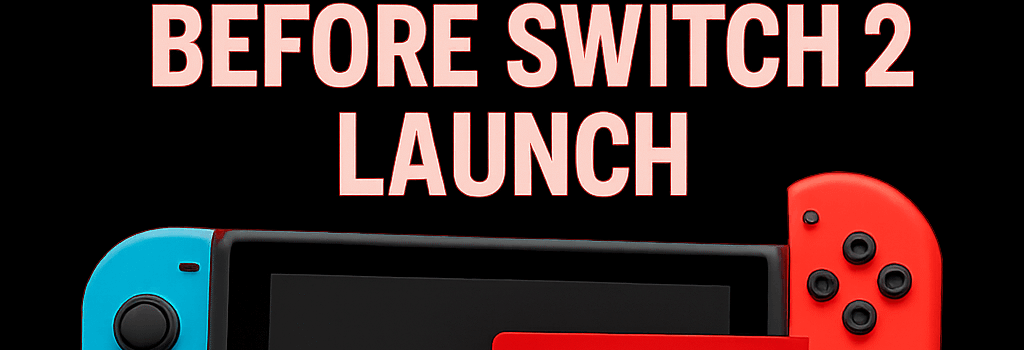Nintendo Ends Switch Online Game Vouchers Before Switch 2 Launch

In a surprise move intended to streamline its digital storefront ahead of the next-generation Switch 2, Nintendo has confirmed it will retire the popular game voucher program for Switch Online subscribers. First introduced in 2019, the program allowed players to purchase two digital game credits for US$100—effectively delivering $10–$20 off each first-party title. As of January 2026, no new vouchers will be sold, and any remaining credits must be redeemed within 12 months of purchase.
How the Voucher Program Worked
- Purchase Model: Subscribers paid US$100 for two vouchers, redeemable only on Nintendo eShop for eligible games.
- Savings Tiers: Standard titles (US$60) netted a $10 discount; premium releases (US$70–$80) like The Legend of Zelda: Tears of the Kingdom delivered up to $30 off.
- Eligibility List: Only first-party and select third-party titles explicitly added by Nintendo could be redeemed.
- Upgrade Path: For hybrid games issuing separate Switch 2 Editions, players could redeem the Switch version and later pay a top-up fee to upgrade.
Reasons Behind the Decision
Nintendo’s decision aligns with several strategic and technical considerations:
- Transition to Switch 2 Digital Ecosystem: By shuttering the voucher program, Nintendo simplifies its pricing architecture as it rolls out higher MSRP titles—now averaging US$70–$80—designed for the more powerful hardware of Switch 2.
- Revenue Management: Eliminating fixed - price credits allows Nintendo to capture full retail margin on each sale, sidestepping the accounting complexities of deferred revenue on voucher liabilities.
- Platform Uniformity: Focusing on direct digital transactions reduces the overhead of maintaining separate voucher inventories, digital license keys, and customer support workflows.
Technical Analysis: Digital Distribution Economics
Digital storefronts operate on slim margins: platform holders (Nintendo, Sony, Microsoft) typically take a 30% cut of each sale, leaving publishers with 70%. Under the voucher model, Nintendo front-loaded revenue with a discount, projecting break-even based on basket analysis and expected attach rates for DLC and in-game purchases.
However, with Switch 2 titles commanding higher base prices—bolstered by improved GPU (approx. 2 TFLOPS vs. 1 TFLOP), expanded RAM (8 GB LPDDR5 vs. 4 GB LPDDR4X), and 4K docked output—the economics shift. Nintendo can no longer absorb $20–$30 discounts without impacting development ROI on AAA franchises.
Competitive Landscape and Strategic Implications
Competitors have pursued different digital incentives:
- Sony PlayStation often hosts seasonal sales—up to 50% off first-party titles—but rarely offers upfront voucher systems.
- Microsoft Xbox leverages Game Pass subscriptions to drive day-one access, offsetting discount needs with recurring revenue.
Nintendo’s voucher discontinuation underscores its aversion to subscription bundling beyond basic online play. Industry analyst Samantha Chen of GameValue Insights notes, “Nintendo values full-price digital sales for IP sustainability—vouchers were always an outlier in their controlled pricing strategy.”
Implications for the Switch 2 Ecosystem
Looking ahead, the pivot away from vouchers may presage new digital models for the upcoming Switch 2 platform:
- Dynamic Pricing: Nintendo could introduce regional or time-limited discounts via eShop algorithms, similar to Steam flash sales.
- Enhanced Loyalty Programs: Integration of My Nintendo points or tiered rewards could replace one-off voucher purchases.
- Cloud Streaming Partnerships: As cloud gaming grows, Nintendo may bundle titles through subscription tiers with partner services (e.g., Nvidia GeForce Now, Microsoft Azure).
Expert Opinions
“By ending the voucher system, Nintendo is doubling down on its premium pricing model for first-party titles. This reflects confidence in the value of its IP and hardware capabilities,” says John Alvarez, senior analyst at DigitalForge Research.
“We expect to see more flexibility in digital promotions as Nintendo modernizes its eShop backend for Switch 2—potentially real-time discounts or bundled DLC offers,” predicts Emily Ross, cloud gaming consultant at StreamScale.
Key Takeaways
- Switch Online vouchers will be unavailable after January 2026; unused credits expire 12 months post-purchase.
- Program sunset aligns with rising Switch 2 game prices (US$70–$80) and a simplified digital revenue model.
- Future digital incentives may include dynamic pricing, loyalty rewards, and cloud-linked subscription bundles.
Nintendo’s strategic shift marks the end of one of the most consistent routes to discounted first-party digital games on Switch, as it prepares to fully transition its audience to the enhanced capabilities and pricing realities of the next console generation.